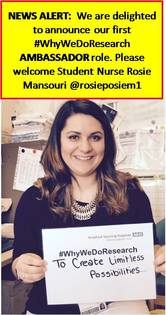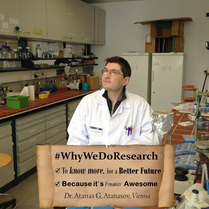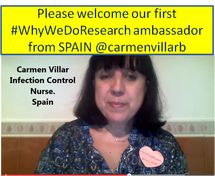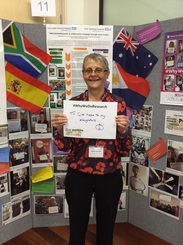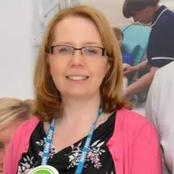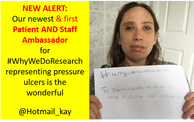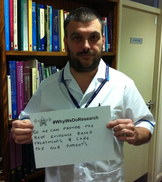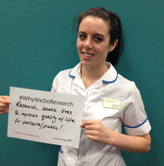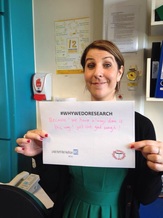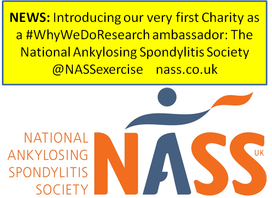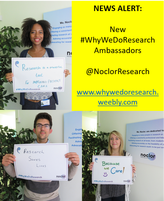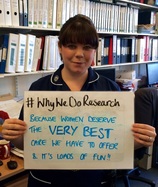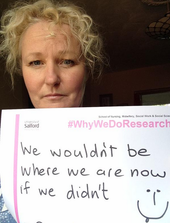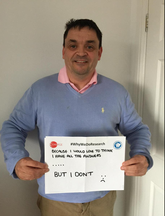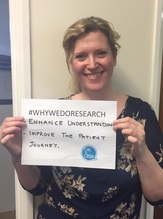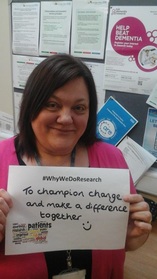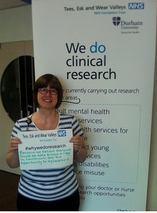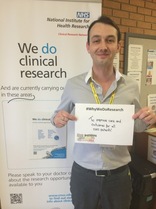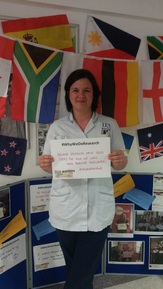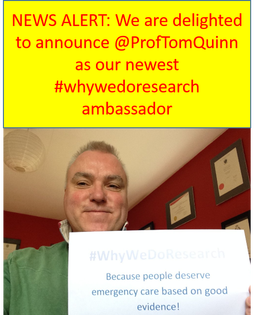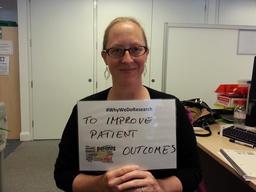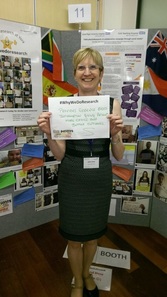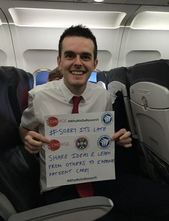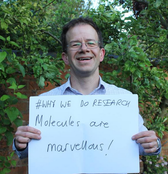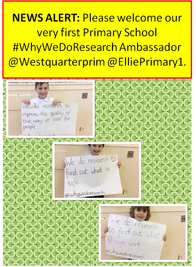Campaign Ambassadors
The role of the ambassador is to promote the work and purpose of #WhyWeDoResearch, and to support patients, public and staff to have a voice about their involvement in Research. We announced our first ambassador role on 25th May 2015.
As a minimum, ambassadors offer photo-opportunities to patients, public and staff at their organisation and can be involved in tasks such as writing small pieces for their local newsletters or speaking at their organisation symposiums. For ambassadors representing organisations, the amount of work which can be undertaken during work time should be discussed with line managers / organisation higher management - there is no expectation from the #whywedoresearch collaborators and it is entirely the organisations decision as to whether they allow this or not. There is no maximum limit to ambassador involvement as this is a voluntary role and we appreciate anything that anyone is able to give in order to support continuing the conversation about research.
There is no limit to the number of ambassadors who can represent an organisation or a disease - we just ask that you work together to spread the voice.
To express an interest in being an ambassador as an independent member of the public, as a patient / patient group representative, or for your establishment / Trust / Charity / University, please send a direct message via twitter to any of the following @ClaireW_UK / @keeling_michael / @mrskellyyoung / @robrien100 / @m_irand_a / @nursenerdy / @AusNurseEd / @Irish_RNN.(NB. It is ambassadors responsibility to discuss the role with their organisation should this be necessary).
As a minimum, ambassadors offer photo-opportunities to patients, public and staff at their organisation and can be involved in tasks such as writing small pieces for their local newsletters or speaking at their organisation symposiums. For ambassadors representing organisations, the amount of work which can be undertaken during work time should be discussed with line managers / organisation higher management - there is no expectation from the #whywedoresearch collaborators and it is entirely the organisations decision as to whether they allow this or not. There is no maximum limit to ambassador involvement as this is a voluntary role and we appreciate anything that anyone is able to give in order to support continuing the conversation about research.
There is no limit to the number of ambassadors who can represent an organisation or a disease - we just ask that you work together to spread the voice.
To express an interest in being an ambassador as an independent member of the public, as a patient / patient group representative, or for your establishment / Trust / Charity / University, please send a direct message via twitter to any of the following @ClaireW_UK / @keeling_michael / @mrskellyyoung / @robrien100 / @m_irand_a / @nursenerdy / @AusNurseEd / @Irish_RNN.(NB. It is ambassadors responsibility to discuss the role with their organisation should this be necessary).
All ambassadors are listed in alphabetical order by establishment & country from this point onwards
AUSTRIA
SPAIN
UNITED KINGDOM
UK: Addenbrookes Hospital, Cambridge. Claire Adams, Diabetes Research Nurse.@claire_adams_
Awaiting photo.
Awaiting photo.
UK Health Education North West.
Lea Appleby @leaWBEF Project Manager: Transforming Learning Environments
Awaiting photo
Lea Appleby @leaWBEF Project Manager: Transforming Learning Environments
Awaiting photo
UK: Imperial College London, Enrique Castro, Academic Research Nurse,
Center for Infection Prevention and Management, (@FNightingaleF Scholar) @CastroCloud
Center for Infection Prevention and Management, (@FNightingaleF Scholar) @CastroCloud
UK: NHS Lothian
Caroline Hughes @CarolineHughes1, Emergency Department Charge Nurse
Awaiting photo
Caroline Hughes @CarolineHughes1, Emergency Department Charge Nurse
Awaiting photo
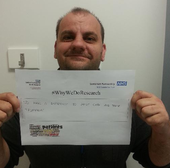
UK: Diabetes research nurse for Taunton and Somerset NHS Foundation Trust. Email- [email protected]
@tamlynresearch
UK: Salford. University of Salford, Jayne Hardicre, Lecturer in Nursing @createyourself9 @nursingSUni
